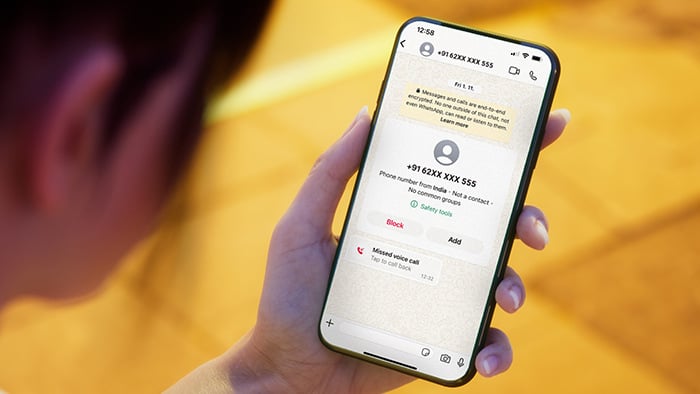What is a romance scam?
A romance scam (or online dating scam) is when a fraudster lures someone into a fake romantic relationship. A scammer will typically use a fake online identity to attract a victim. Once the victim shows interest, the scammer will work to build trust until they finally ask for money or have enough personal information to steal their money or identity.
Romance scammers can be individuals with just one or a few victims. But in some cases, scammers are part of a network of fraudsters, working together to con thousands of people.
In 2024, the Federal Trade Commission received over 60,000 dating scam reports, with a combined loss of $1.2 billion — and that’s just in the US. Compliance and risk management consultants Moody’s reported a global six-year high for romance scammers, with the highest number of fraudsters coming from the US (38%) and Nigeria (14%).
Most romance-related scams in Nigeria can be linked to an unofficial group called Yahoo Boys, famous for sharing sextortion tips and scripts to help others take advantage of lonely victims.
And now, technological advancements, including generative AI, are providing scammers with new ways to manipulate their victims.
What the experts say
"AI has introduced new efficiencies that enable fraudsters to easily create more convincing personas, automate large-scale outreach and refine psychological manipulation."
Put simply, AI tools are making romance scams more sophisticated and harder to spot. Scammers can now automate realistic, emotionally targeted messages, and generate convincing fake profiles with AI-created photos and videos. This polished, scalable approach makes vigilance and careful verification essential for staying safe online.
What is catfishing?
Catfishing is a type of romance scam in which the perpetrator uses another person’s information (like photos and personal data) as their own. Typically, catfish scams involve using fake online profiles and targeting specific victims. The motive for catfishing can be financial, revenge, personal wish fulfillment, or simply entertainment.
Unlike romance scams, catfishing isn’t always about luring someone into a romantic relationship — sometimes, it’s for “friendship.” And while the goal of catfishing isn’t always financial, the victim usually ends up feeling hurt, embarrassed, angry, or sad.
Signs of a romance scammer
Dating scams involve elaborate stories and social engineering tricks designed to manipulate you into giving away your money. Common signs of an online dating scammer include a light social media profile, a desire to move fast, requests for money, and never meeting up or having a video call.
Here are red flags that likely signal you’re dealing with a romance scammer:
-
Wanting money: The biggest red flag is asking you for money before you've met them — scamming is how many cybercriminals make their living. They’ll usually start out asking for small sums of money before trying to get more significant amounts. Some scammers may even send you money first to prove financial stability and build trust.
-
Coming on strong: Scammers want to build an emotional connection quickly to exploit you and move on. A familiar dating scam format involves declaring one’s love after only a few conversations, then making promises about marriage or moving in together. They may employ “love bombing” tactics where they shower you with non-stop compliments and attention.
-
Asking you to leave the site: It’s common for fraudsters to lure you to another platform, such as WhatsApp. This is to bypass any security measures implemented by dating sites and social media platforms. It also allows them to ask you for personal information, such as your primary email address or phone number, that can be used to commit identity theft and related scams.
-
Avoiding video calls: A romance scammer will typically avoid showing you their real face — chances are, they don’t look like their pictures. However, some fraudsters are starting to use AI to “deepfake” their appearance in videos.
-
Asking to meet up, but never do: Romance scammers will promise to meet or visit, but will always have an excuse that keeps them from showing up. This is usually something emotional, involving illness or a severe accident, to generate maximum sympathy. Sometimes these stories come with a request for money.
-
Lies or exaggerated stories: Romance scammers often invent urgent or emotional scenarios to convince their targets to send money or personal information. They’re adept at crafting believable stories that tap into a person’s goodwill, sympathy, or desire to help. Some common lies romance scammers tell include saying their car has broken down, their plane/train was canceled, or that they’ve injured themselves.
-
Fake dating profiles: Scammers need to build a believable identity across many different platforms, so their online profiles are often minimal. You may also see an unusually attractive profile picture or a lack of photos and friends/connections.
 Few friends and just a couple of professional photos are common signs of a romance scammer's social media profile.
Few friends and just a couple of professional photos are common signs of a romance scammer's social media profile.
Romance scammer phrases
Romance scammers often follow a script. Their language is usually emotionally charged to build trust quickly, create false intimacy, and manipulate you. Phrases are typically generic, intense, and can appear early in communication.
Any phrase along the lines of those listed below may be a red flag that you’re dealing with a scammer, especially if they love bomb you or keep avoiding video calls or meeting in person.

Common romance scammer phrases include:
“I’ll pay you back.”
“I can’t video call.”
“We’re so alike.”
“Trust me.”
“I’ve fallen for you.”
“I can’t wait to be with you, but…”
“My bank account’s frozen.”
“I’ve never felt this way before.”
“I’ll visit as soon as I get time off.”
“I need help with something.”
“I don’t know who else to ask.”
Protect yourself against dating site scams
To protect yourself from dating site scams, verify identities before sharing personal details, stick to platforms with a strong track record for detecting and banning scammers, and be wary of profiles that move conversations off-platform quickly. Avoid sending money or gifts, and keep an eye out for inconsistencies in stories or photos.
12 tips on how to outsmart a romance scammer
Here are our top 12 tips on staying one step ahead of romance scammers:
-
Stay where the conversation started: Avoid leaving a dating site or app until you’re ready or you've met in person. It’s also best to stick to reputable, well-known services to avoid ending up on a dangerous site.
-
Don’t assume the person is safe: Romance scammers like to set up fake profiles on dating websites and apps to lure victims in.
-
Look them up online: Verify their background by cross-checking online profiles with a quick search of their name to see what pops up.
-
Do an image search: Use Google to run a reverse-image search of their profile picture and photos to see if they show up somewhere else with different information.
-
Look out for scripted messages: Be wary of overly complimentary messages. Run them through a search engine to see if they appear as known scripts on any romance scam sites.
-
Spot inconsistencies: Ask lots of questions and look out for stories that don’t quite add up — changing details or vague answers can be a sign something’s off.
-
Be wary of rushing: If someone wants to commit immediately or moves the relationship along unusually fast, it could be an attempt to gain your trust before taking advantage.
-
Get a second opinion: Ask a friend or family member for advice if you’re unsure about someone. A second pair of eyes can help you spot scams.
-
Request to meet up in person: If someone repeatedly gives excuses when asking to meet up, then the likelihood is that they’re a romance scammer.
-
Set up a video call: If someone is unusually avoidant about video calling, they could be a romance scammer. If they accept a video call, be wary of deepfakes and remember that built-in laptop and phone cameras can be hacked, so secure your webcam to prevent scammers from spying or recording you.
-
Don’t send money or info: No matter what the scammer’s story is, never send money to someone you haven’t met. This includes sharing personal information or account details (such as your Apple ID password) that could be used to commit identity theft later.
-
Don’t trust unknown links or downloads: Many scammers use phishing tactics — sending links that steal your login details or infect devices with malware. Avoid clicking links, especially if they’re irrelevant to your conversation.
Even if you follow all the best advice, scammers may find new ways to target you. Strengthen your defense against digital scams with Avast’s AI-powered scam detection tool. Paired with our award-winning antivirus, this free cybersecurity package can help keep your device, identity, and home Wi-Fi more secure.
How to report a dating scammer
If you believe you’ve been targeted by a romance scammer, report the scam to the dating site and relevant authorities. If money was involved, contact your bank as well.
Here’s how to report a dating scam:
-
Contact your bank: You might be able to get lost funds back or stop a transfer from going through.
-
File an official complaint: Report the scam to the FBI’s Internet Crime Complaint Center.
-
Report any exposed information: If you shared any sensitive data with the fraudster, like your passport info or credit card number, report the scam as identity theft.
-
Report the scam to the dating site or app: Contact the platform you met the scammer on and share as many details as possible, including their username.
How romance scams work
Romance scams start with fraudsters creating fake identities to trick victims into believing they’re in a genuine relationship. They build emotional trust before pressuring targets to send money, and may also steal personal information or sensitive images for identity theft or blackmail. While tactics vary, the ultimate goal is usually financial gain.
Dating scammers tend to follow a familiar pattern:
-
A victim unknowingly matches with a fake online dating profile.
-
The scammer gains the victim's trust and makes them believe they’re dating.
-
The scammer asks for money to help them with an emergency or difficult situation, promising to pay them back.
-
Once the scammer gets the money, they vanish and never pay it back. Or, the scammer keeps asking for money until the victim realizes what’s happening and cuts them off.
 Romance scams start with fake dating profiles and end up with the scammer disappearing after getting what they want (usually money).
Romance scams start with fake dating profiles and end up with the scammer disappearing after getting what they want (usually money).
Romance scammers typically operate on dating sites, but they’re also on social media platforms like Facebook or Instagram. In this case, the scammer typically messages you with a compliment or other flattering pick-up line to kick off the scam.
Common types of romance scams
Many dating scams exist online. Each has its own script and pattern of behavior. Some of the most common types of romance scams are:
-
Sugar daddy scams: A sugar daddy scammer is someone claiming to be a wealthy man (or woman, in the case of sugar mommy scams) looking for companionship with a younger person and offering financial favors and gifts in return. Sugar baby scams are similar, but the scammer targets older victims, promising companionship in exchange for money.
-
Catfishing scams: Catfish scams happen when someone creates a fake online profile using another person's photos or personal info — or even an AI-generated profile — to attract and lure a victim, promising love or friendship.
-
Inheritance scams: This often involves long-term manipulation, where the scammer claims they’re about to come into a large inheritance. They’ll say they want to get married so they can share their wealth. The plan is to get you to send money to cover “fees” or steal your sensitive information.
-
Military scams: A scammer poses as a deployed service member, often overseas. They may use military jargon to appear credible and request money for leave papers or travel costs to meet you.
-
Sextortion and image-based scams: Scammers may pressure you to share intimate photos, then use them for blackmail. They may also collect non-intimate images to impersonate you by creating fake profiles.
-
Tech support scams: Scammers may pose as tech support agents to gain your trust, then shift the conversation toward a more personal or romantic connection to exploit you emotionally and financially.
-
Oil rig scams: The scammer says they work on an oil rig far away, so they have few opportunities to see you. They use this cover to say they’re lonely and looking for love, but will try and run off with your personal data or money.
-
Social media and messaging app scams: The scammer contacts you on Facebook, Instagram, WhatsApp, or another social platform. They then work on building your trust, and manipulate you into giving them money or personal details to steal from you.
-
Fake dating sites: In some cases, an entire dating website is fake or ‘spoofed’ — designed to lure in lonely people looking for love and get them to share sensitive information or download malware onto their devices.
-
Crypto romance scams: In crypto-based romance scams, the victim is manipulated into buying cryptocurrency and transferring it to the scammer's digital wallet, often under the guise of a shared investment goal.
Who are the targets of online dating scams?
Anyone trying to make a connection online can be a target of online dating scams, but scammers tend to target vulnerable people. Women are often viewed as more vulnerable by scammers because there is sometimes a perceived time pressure to find a partner, especially if they want kids.
A 2025 study by UK bank Barclays found romance scams were up 20% year on year. Baby Boomers lost more money than other age groups, likely due to having greater savings and being less familiar with online scam tactics.
What the experts say
"Scammers continue to exploit emotional connections to deceive victims, employing tried and true tactics that have proven effective over time. This steadfast activity highlights the ongoing need for vigilance and education in recognizing and avoiding such deceptive practices."
Romance scam examples
Romance scams are widespread, so it’s no surprise that they frequently make the news. Here are some notable real-life examples of romance scams:
-
A fake dating site called “Searchingforsingles” gained global attention in 2025 when it was revealed the website’s dating profiles were fake. It sold costly credits to keep conversations going, but staff worked in shifts to maintain chats, often leaving notes to ensure continuity.
-
By January 2025, a woman in Acadiana who believed she was in a relationship with Elon Musk had been conned out of $60,000. Scammers used AI-generated deepfakes to convince her the romance was real, even staging FaceTime calls with “Elon.” She dismissed her friend’s warnings, unaware she was caught in a scam.
-
A scammer convinced a woman in France that she was dating Hollywood star Brad Pitt and conned her out of hundreds of thousands of euros. She suspected a scam after the real Pitt publicly announced his relationship with another woman in 2024.
-
In 2023, an 81-year-old woman in Utah was added on Facebook by a scammer pretending to be an army officer in his 60s. The con artist took advantage of the woman’s loneliness by promising marriage and extracted tens of thousands of dollars from her in fake customs fees.
-
An Australian woman was tricked by a romance scammer who claimed to be in the US military. The scammer used increasingly elaborate reasons to defraud her, including needing money to pay Nigerian export tax for some gemstones, costs for lawyers, and bribes for government officials.
Questions to ask a romance scammer
Scammers want to control the narrative — they’ll avoid sharing details that could expose their identity. Asking the right questions can help you determine whether your connection is genuine. Vague or generic answers are a good sign that someone’s a romance scammer.
Here are casual questions that real people can answer easily — but scammers often can’t:
-
Where did you grow up?
-
What’s your favorite restaurant in your hometown?
-
What’s your family like?
-
What was the best vacation you took as a kid?
-
What’s your middle name?
-
What school did you graduate from?
-
What’s a typical day like for you?
-
Can we have a video call later?
-
What’s your Twitter/Instagram handle?
-
What’s your favorite childhood memory?
-
What makes you laugh?
-
What were your previous relationships like?
Help protect against online scams with Avast
Romance scams aren’t distant headlines — they’re happening every day, with devastating financial and emotional consequences. Alongside industry-leading malware protection, Avast Free Antivirus uses advanced AI scam detection to help identify and block even the most convincing schemes before they reach you. Join millions who trust Avast to protect their devices, data, and peace of mind, for free.
















